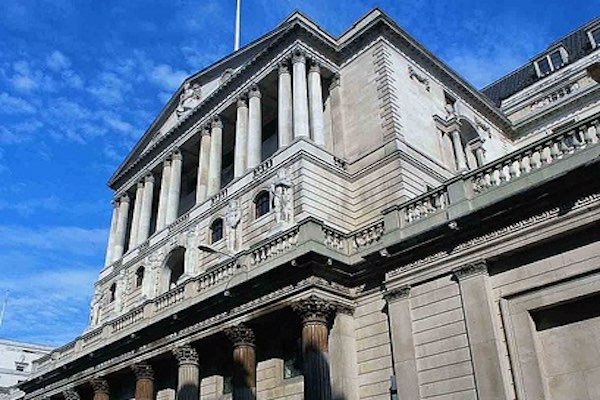The Bank of England has increased its base rate from 0.1% to 0.25% today, the first rise in rates for three years.
The move comes after CPI inflation rose to 5.1% in November - the highest level for over 10 years.
The rise in inflation has put more pressure on the bank to keep inflation under control. Inflation is well above the Bank's 2% target for CPI.
The Banks' Monetary Policy Committee voted by a majority of 8-1 to increase the base rate to 0.25% and by a majority of 9-0 to maintain the amount of quantitative easing at £895bn.
Last month the Money Policy Committee voted 7-2 in favour of keeping the base rate at 0.1%.
The Bank is maintaining its cautious strategy but has indicated that rates could rise to 1% early next year and inflation could top 6% by April.
The Bank of England said recently that developments over the past month have strengthened the case that some tightening of monetary policy may be needed to meet the bank’s 2% inflation target.
Hinesh Patel, portfolio manager at Quilter Investors, said: “Despite this morning’s PMI data and the extraordinary rise in Covid cases the Bank of England’s clearly feels vindicated to raise interest rates just before Christmas.
"Given high, and rising, inflation, in part a result of the Bank’s communication missteps creating a de-facto weaker sterling policy, it clearly felt it could no longer stay on the accelerator pedal despite the risks that are now out there in the economy."
Aegon pensions director Steven Cameron said: “Today’s decision to increase the bank base rate from 0.1% to 0.25% as a result of rocketing inflation will provide a glimmer of hope to those with significant cash savings. However, they shouldn’t be lulled into a false sense of security as inflation, currently sitting at 5.1%, is forecast to rise further, peaking at 6% in April. If the Bank of England’s prediction is correct, this will see an inflation rate 5.75% higher than interest rates, which means by spring, those in cash could be losing 5.75% of their purchasing power over a year. Such a high loss for cash savers in ‘real’ terms has not been seen since the late 1970s, or for around 45 years.
“A predicted inflation rate of 6% in April will coincide with state pensioners receiving a 3.1% increase, just over half of the cost of living increase year on year, and is likely to reignite calls for the Government to think again after dropping the Triple Lock’.”
• This is a breaking news story and will be updated with reaction during the course of the day.

